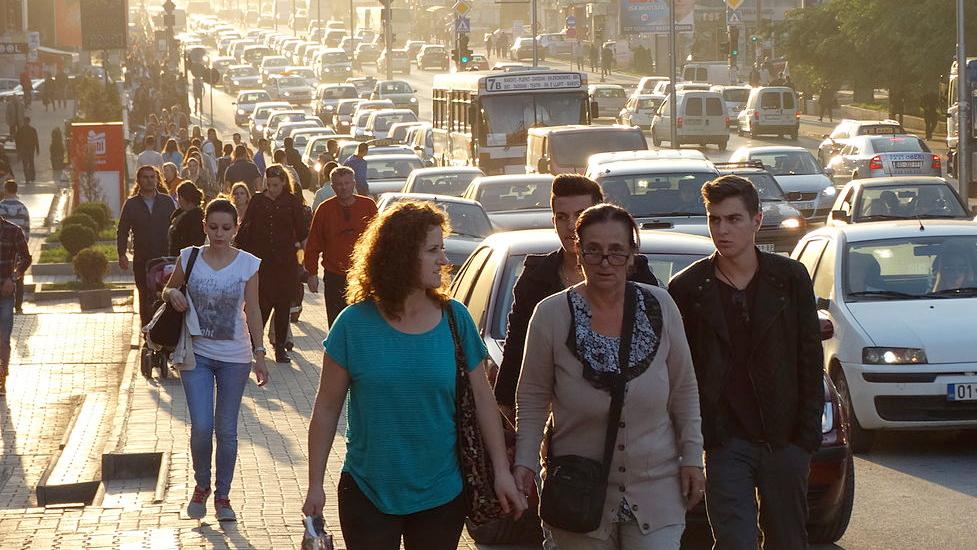Women walking in Pristina, Kosovo.
Two summers ago, I was walking down a side street in Pristina, Kosovo’s capital, and a man asked me for the time.
He looked like he was around my age, in his late 20s, with glasses and a skinny frame. Although we were the only two people on the street, he definitely wasn’t physically imposing. Still, I took several steps back and curtly said I didn’t have the time.
He was visibly offended at my response. I felt guilty for being rude, but also thought, why risk an encounter with a man on the street, when such encounters usually mean one thing.
Since moving back to Kosovo, my birthplace, from Canada four years ago, I’ve been grabbed, followed, yelled at, sworn at, and heard all sorts of disgusting commentary about my legs, my body, my genitals, you name it, all while simply walking down the street.
The stories I’ve heard from my female friends about being a woman on Kosovo’s streets are equally gut wrenching. I’ve heard stories of women being followed all the way into their apartment buildings, of old men making sexual comments at teenage girls in school uniforms, of cars slowing down to yell obscenities at women waiting for the bus, and run-of-the-mill sexual comments about one’s body.
This has been a more or less invisible issue in Kosovo, a fact of life to be expected once a girl hits puberty. When the Kosovo Women’s Network held the country’s first Take Back the Night campaign in 2014, supporters were asked to post Facebook statuses against street harassment. The victim blaming and denial that exploded online in response was disheartening to witness.
Many men, and women, too, blamed women for dressing in revealing clothing and inviting harassment. Some commenters said sexual harassment was simply not that widespread in Kosovo, that men should be able to freely express themselves and that the campaign unfairly suggested that all men are harassers. In 2014, women’s stories weren’t enough to convince people that street harassment is a widespread problem in Kosovo.
Now, there’s no excuse. The Kosovo Women’s Network recently published the country’s first national report on sexual harassment, and the research shows what Kosovar women have always known: street harassment affects women across Kosovo, regardless of geographical location, ethnicity, sexual orientation, and able-bodiedness.
Although most Kosovars know that sexual harassment is harmful, a disturbing 40 percent of both men and women think that young women actually enjoy being harassed. The majority of Kosovars still think that women’s dress and behavior causes sexual harassment, and not our country’s culture of male entitlement.
Kosovo’s feminists have tools that we didn’t have before, the first being this research, which quantifiably demonstrates that sexual harassment is real, widespread, and threatens the safety of women and girls. The second tool is an upcoming app which will allow users to report sexual harassment in real time and directly contact the police through an emergency button.
These are both initiatives I couldn’t have imagined a few years earlier, just like I couldn’t have imagined a street harassment campaign blowing up in Kosovo.
I’m looking forward to seeing what happens next.
We want to hear your feedback so we can keep improving our website, theworld.org. Please fill out this quick survey and let us know your thoughts (your answers will be anonymous). Thanks for your time!
